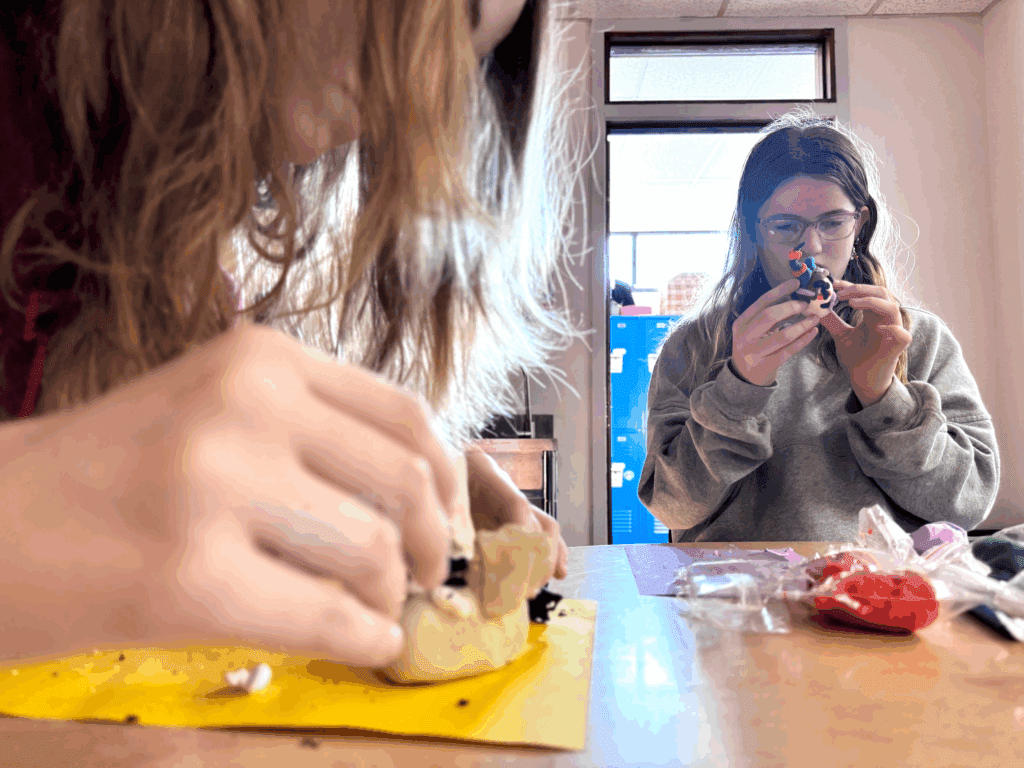Math –
Ms. Andrea’s math group solved place value riddles, built numbers with base ten blocks and wrote them in standard, expanded and word forms. We introduced Word Problem Wednesday, helping each other solve place value story problems. These young Betas learned several new math games! Lastly, we practiced counting place value block illustrations and compared them to one another using the greater than and less than symbols.
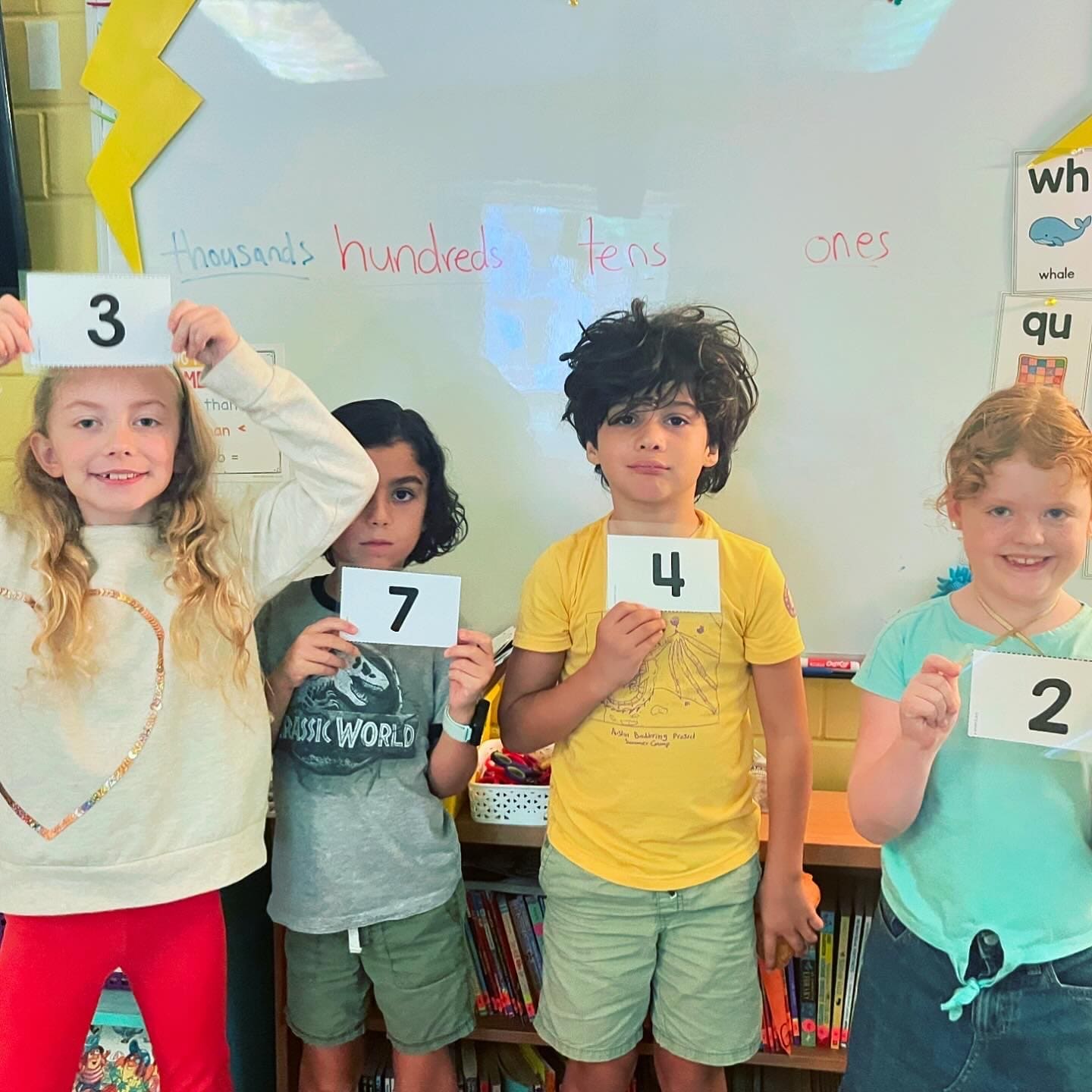 | 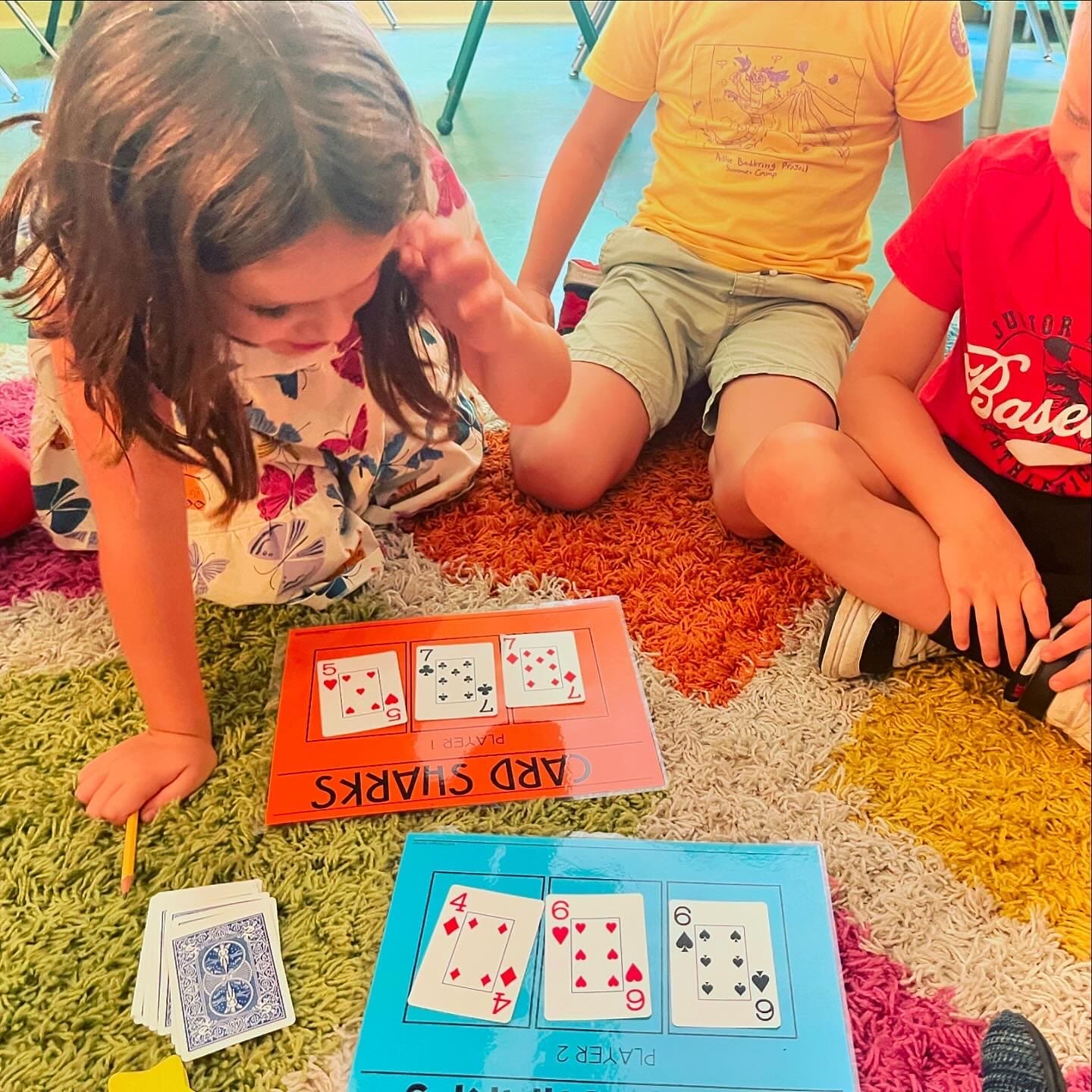 |
|---|
Ms. Kelly’s math group wrapped up their place value unit this week by reviewing skills with a partner and participating in a place value and rounding scavenger hunt. Problems were placed around the room and the kids needed to locate and answer all 12 questions. We ended the week rocking our assessment! Next week we begin an addition and subtraction unit! 😊
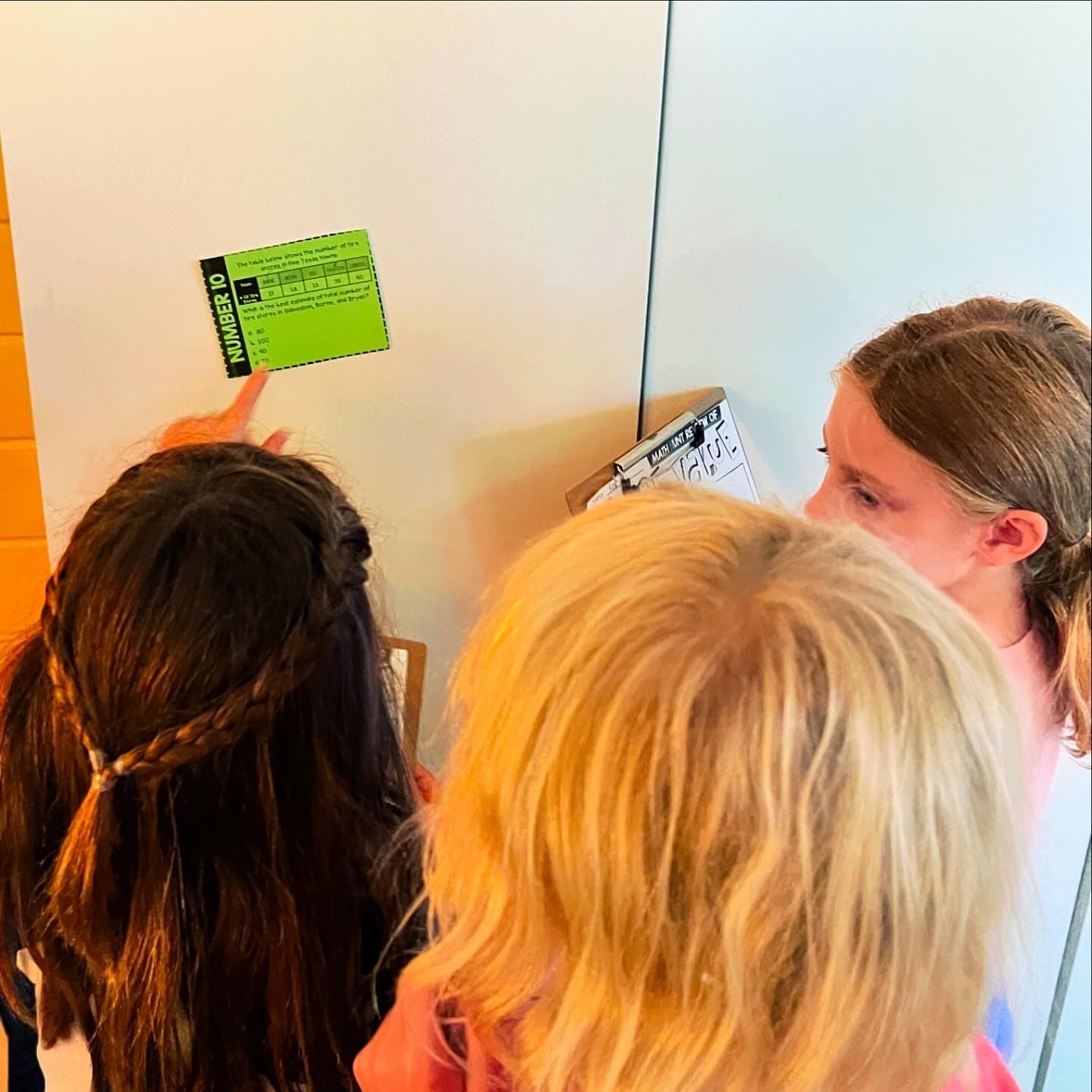 | 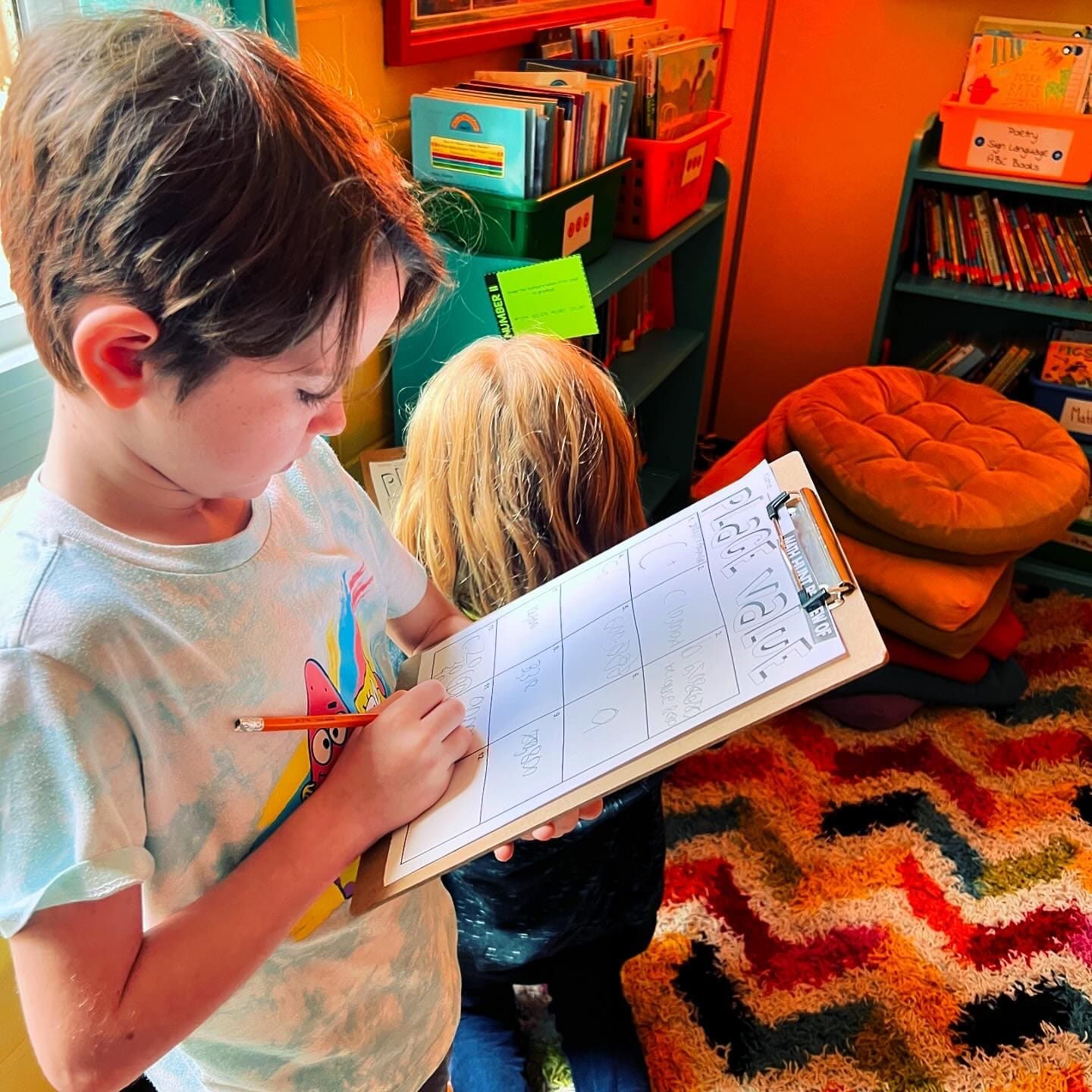 | 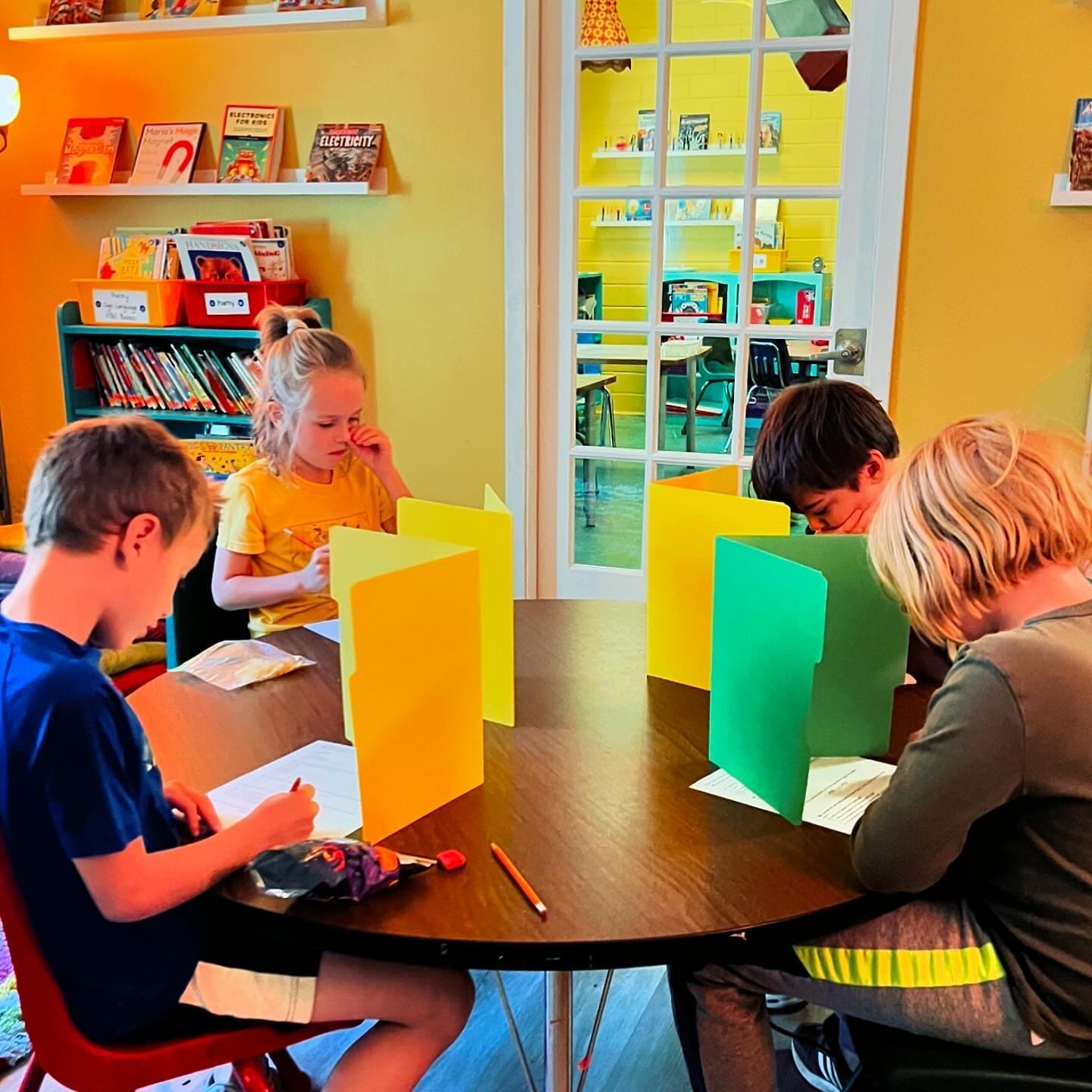 |
|---|
Reading –
Ms. Kelly’s reading group reviewed and practiced “glued sounds” this week (ng & nk). We also began a “Reading Skill of the Day” practice. This practice will routinely introduce and reintroduce important skills like finding the main idea and two supporting details, cause and effect, inference, author’s purpose and compare and contrast.
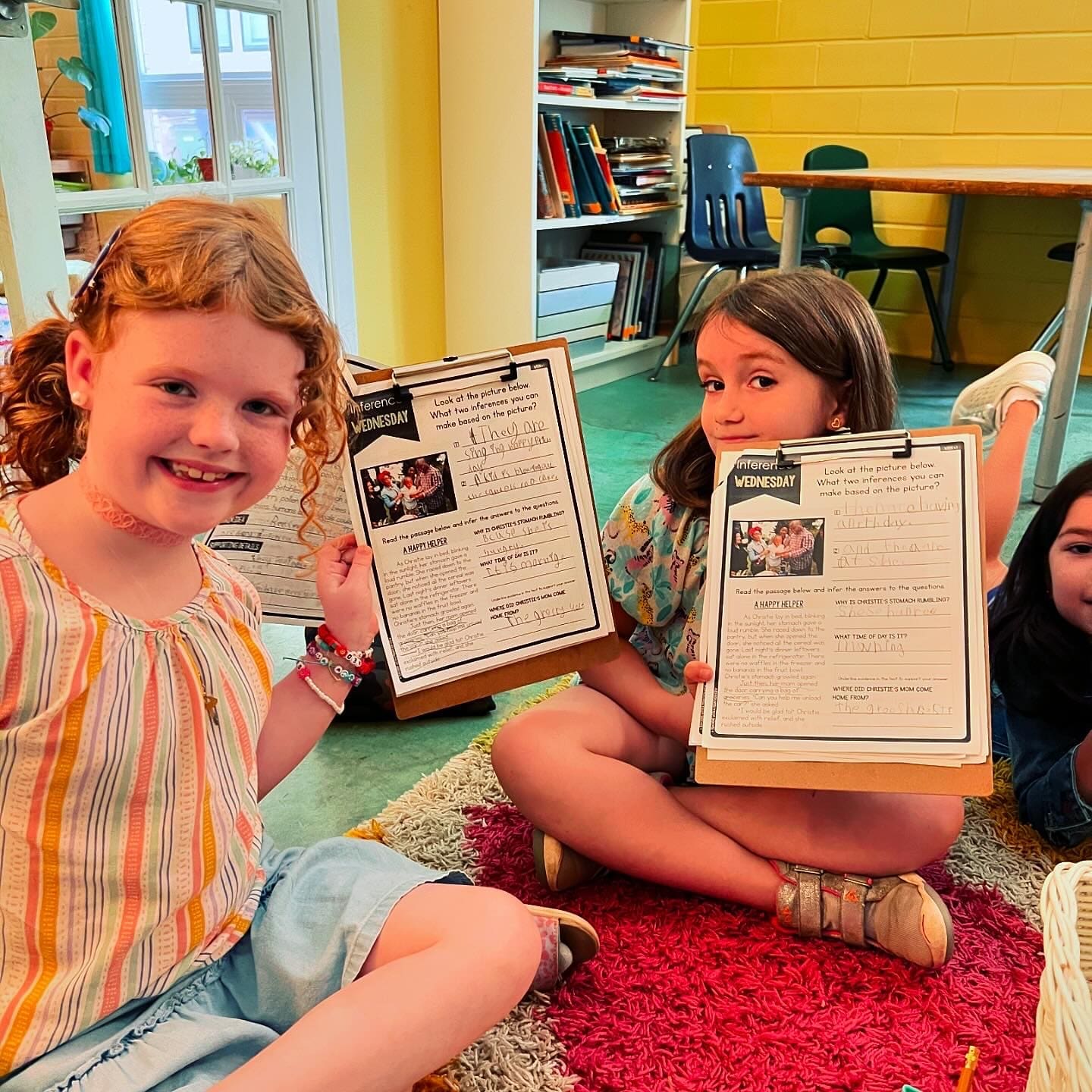 | 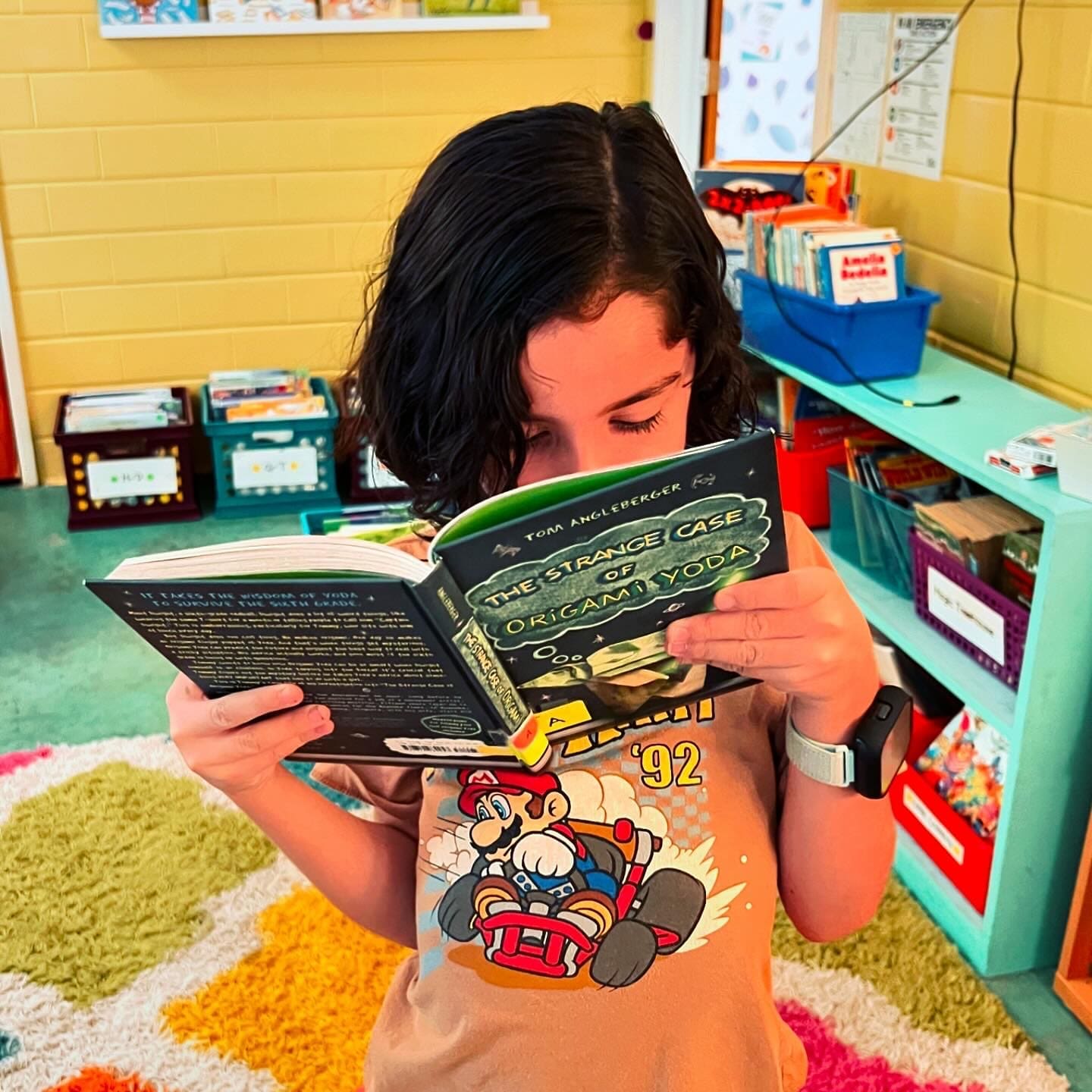 |
|---|
Ms. Andrea’s reading group reviewed long vowels and open syllables: syllables with long vowels at the end. We incorporated finding a main idea into our Author’s Purpose study. Betas read short stories and highlighted evidence to support their selection of author’s purpose. We talked about identifying strong evidence, that without evidence our choice would rely solely upon our opinion, how the type of evidence we find will vary depending on the author’s purpose, and that an author can have multiple purposes.
We also reviewed the great reader skill of making predictions. Taking the time to make predictions helps the reader to engage with the text. Predictions can be made before reading, during reading, and confirmed afterwards. Finally, we learned to write lots of new letters in cursive.
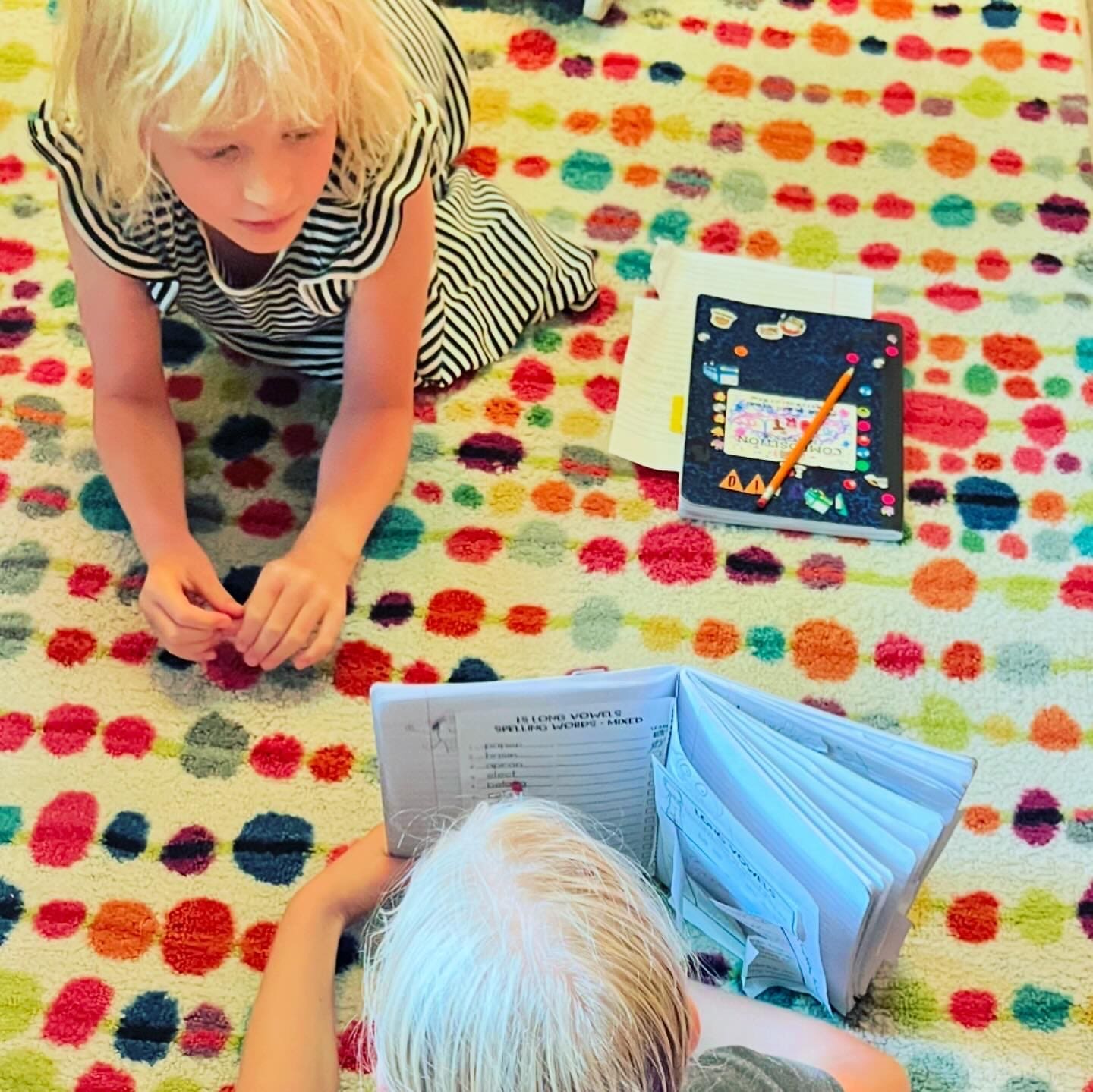 | 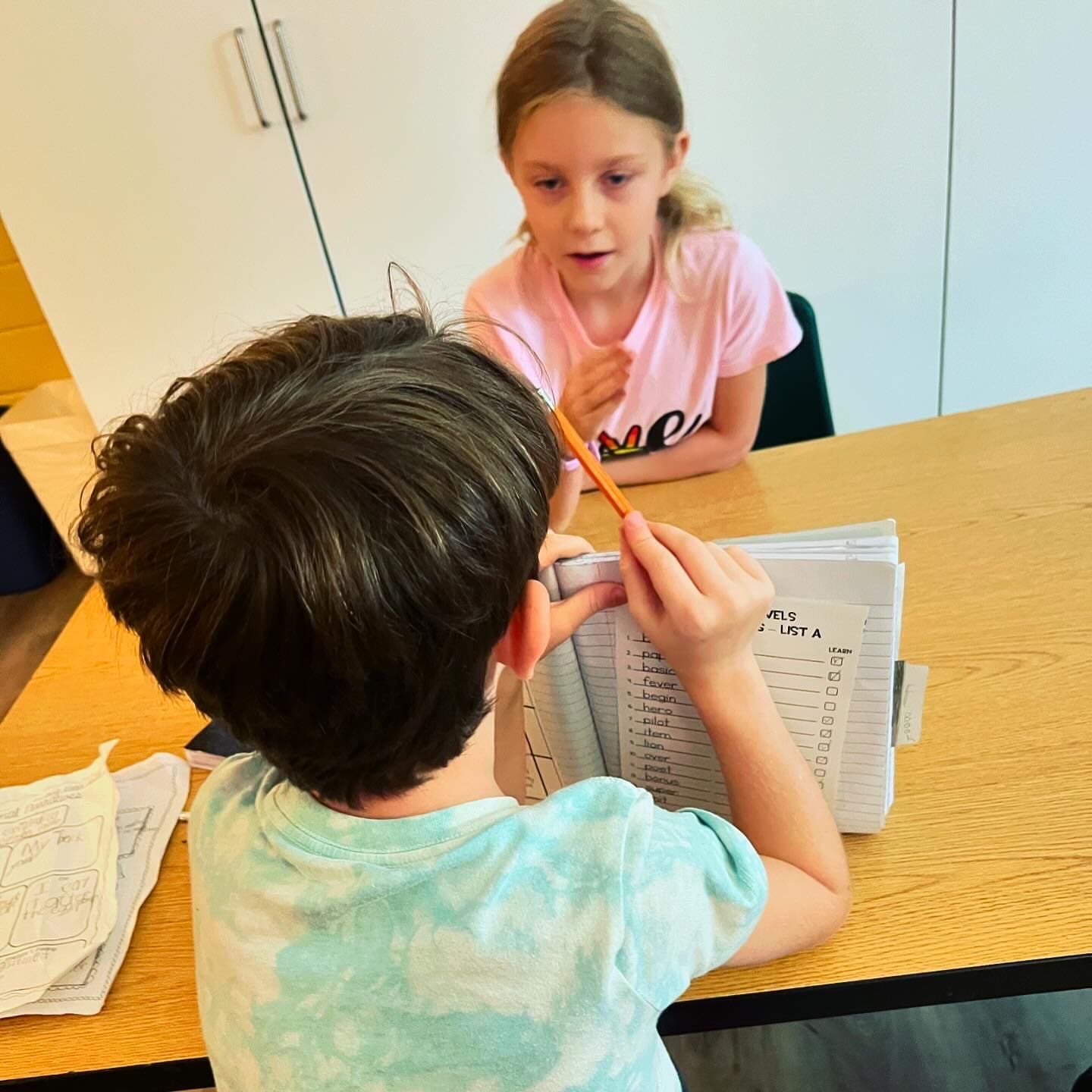 | 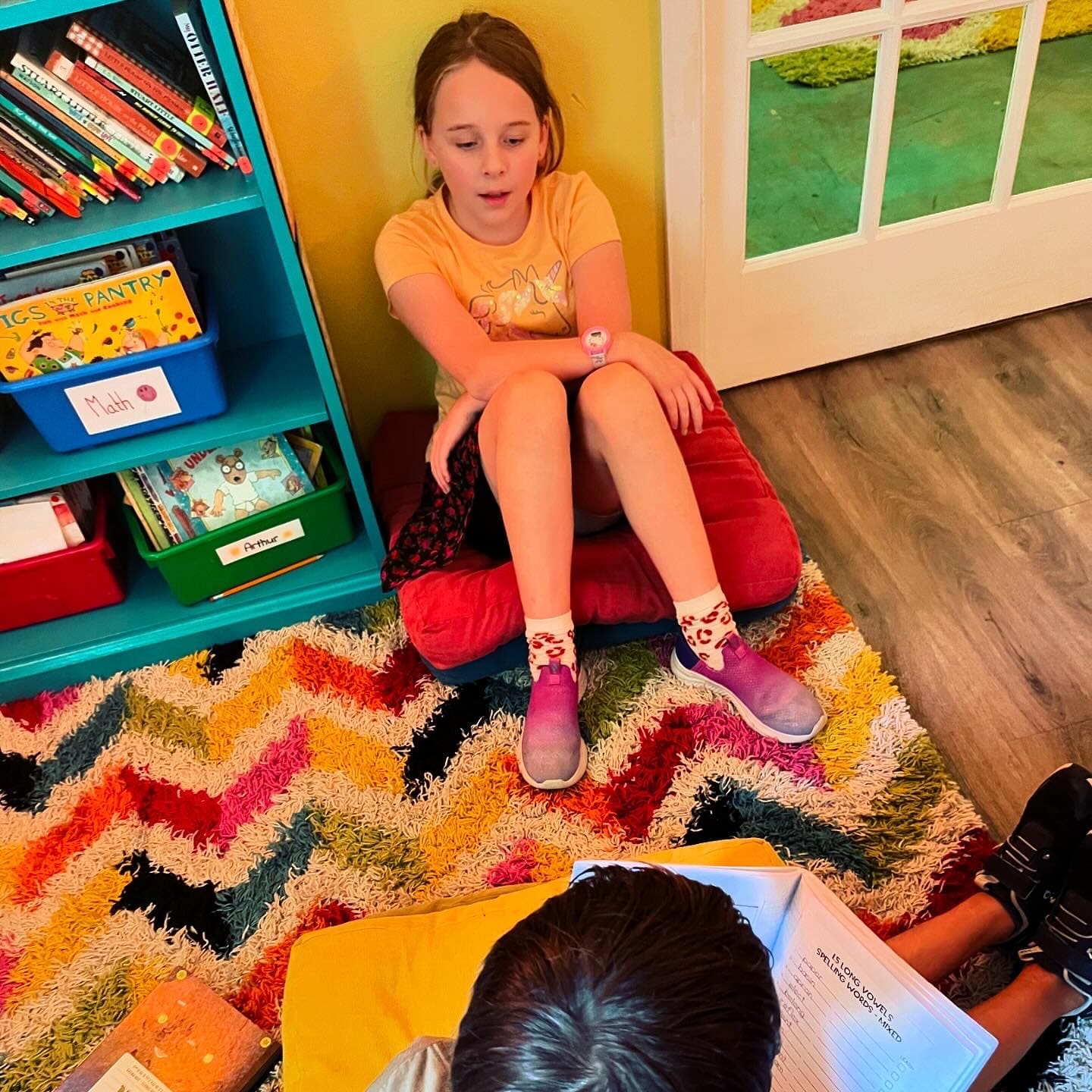 |
|---|
Writing –
The Betas met the “Then & It Monsters!” These villains pop up in our writing when we write short, choppy, boring sentences. Sometimes they sound like: “Then” this happened… “And then” that happened… We practiced fixing up a paragraph that used “it” and “then” way too many times and made it SO much more interesting! Then we scoured our own writing in search of overused words to replace.
We also learned the importance and power of using both strong and juicy verbs and specific nouns in our writing. Sometimes our “it” monsters mingle with “he” and “she” monsters and the reader would really benefit from more specific information. Which store? What thing? Who exactly? Then, you guessed it, we searched our own writing to identify boring verbs and non descriptive nouns and replaced them with more interesting and informative ones.
Most Betas are wrapping up their personal narratives and are working with a teacher on revising. We can’t wait to share these small moments with you!
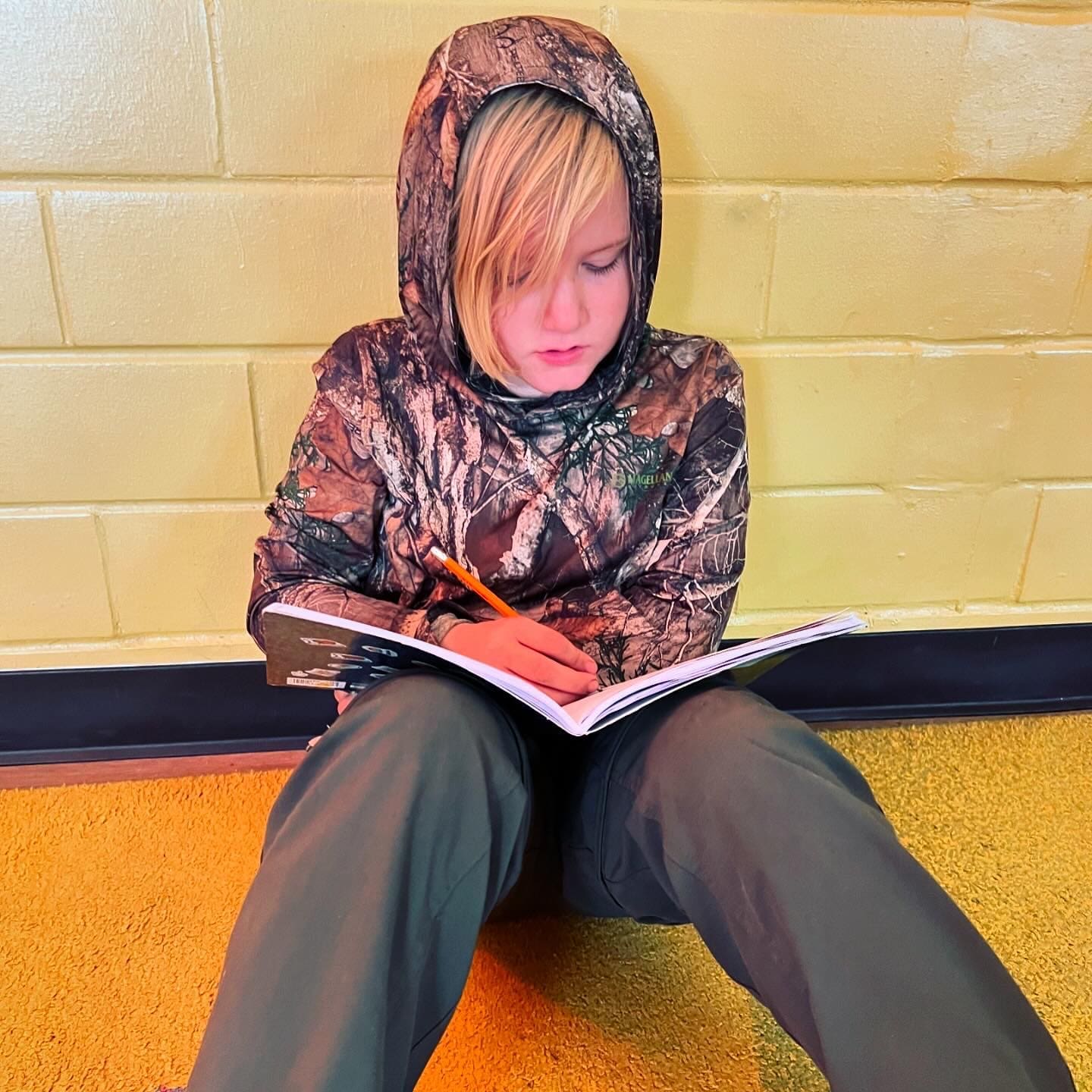 | 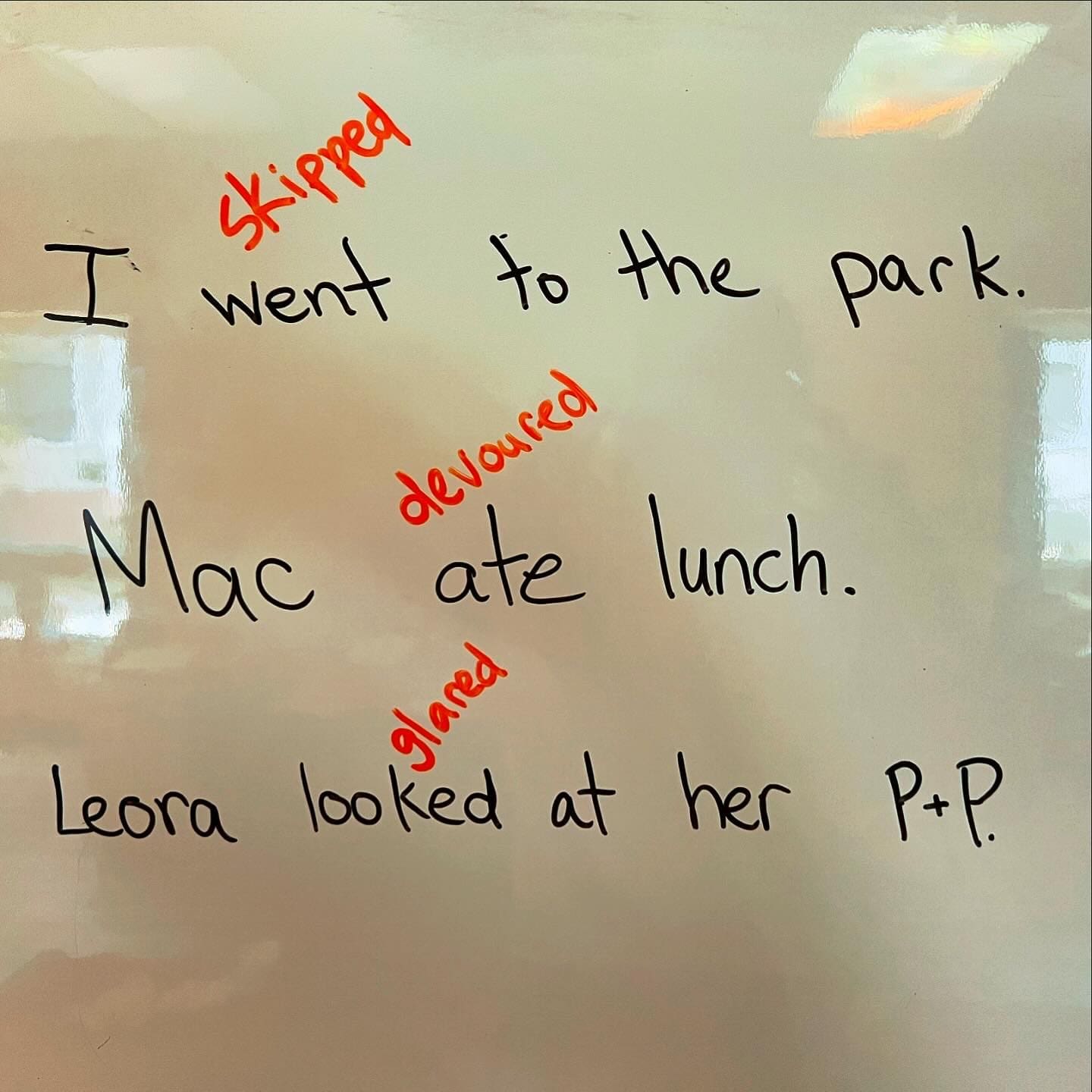 |
|---|
Theme –
Our Beta scientists learned all about conductors and insulators! Some materials allow electric current to flow more freely than others. These materials are called conductors. Other materials are resistant to the flow of electric current. These materials are called insulators. Conductors and insulators are both important in the field of electronics.
We gave our scientists a range of objects. Their challenge- to predict which objects were conductors and which were insulators before experimenting. They discovered that if they attached a simple circuit to the metal objects the lightbulb would light up because the electrons could freely pass through, while wooden or plastic objects did not light the bulb. The electrons find it more difficult to travel through.
And did you know you can make a circuit with a file folder, tin foil, a 9 volt battery and a holiday light? Well you can! As long as there is a closed circuit crested with the tinfoil the bulb will light! Pretty cool, right? These tin foil circuits are not just any plain old circuits! We tricked them out and MAN do we have some electrifying masterpieces!! 💡 🖼️
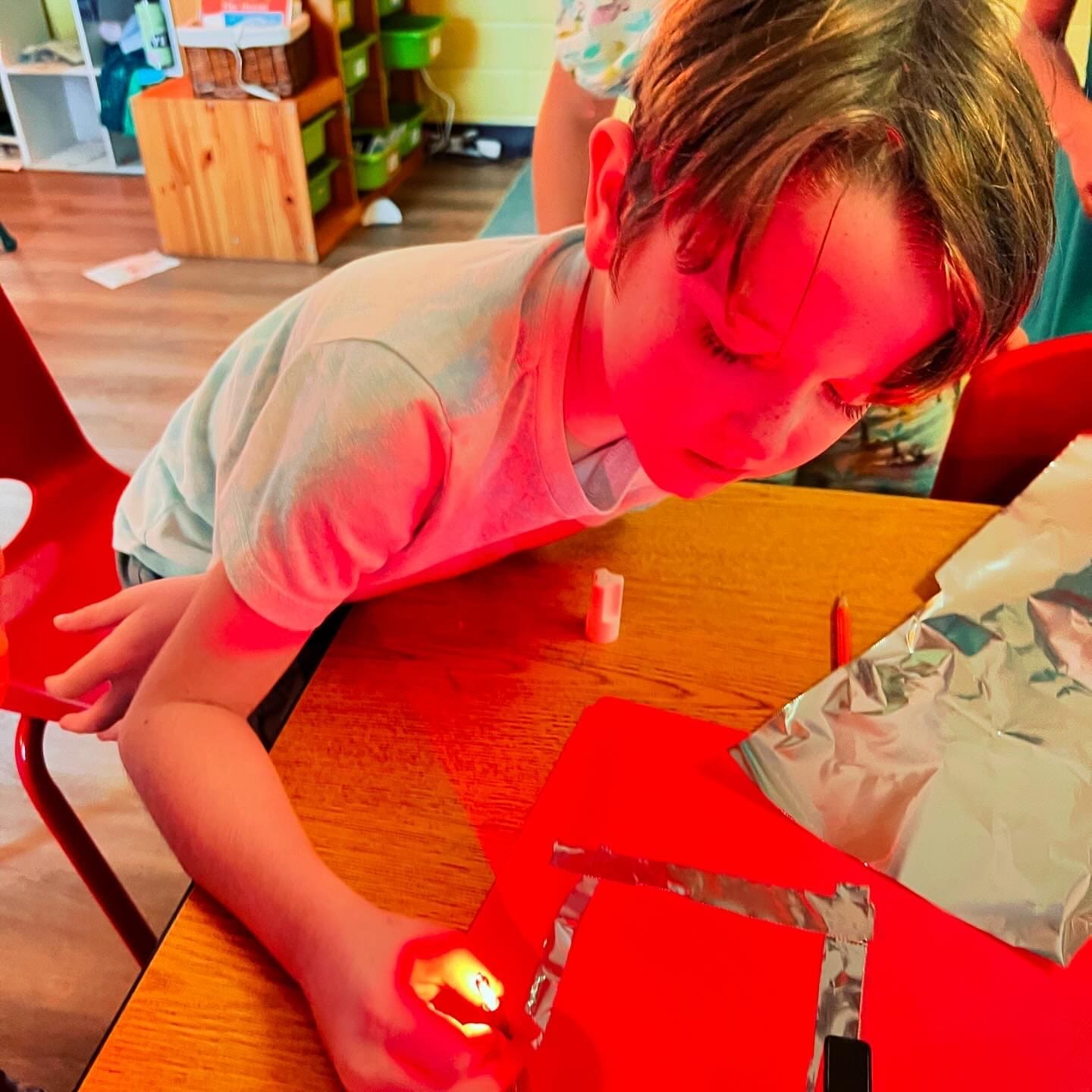 | 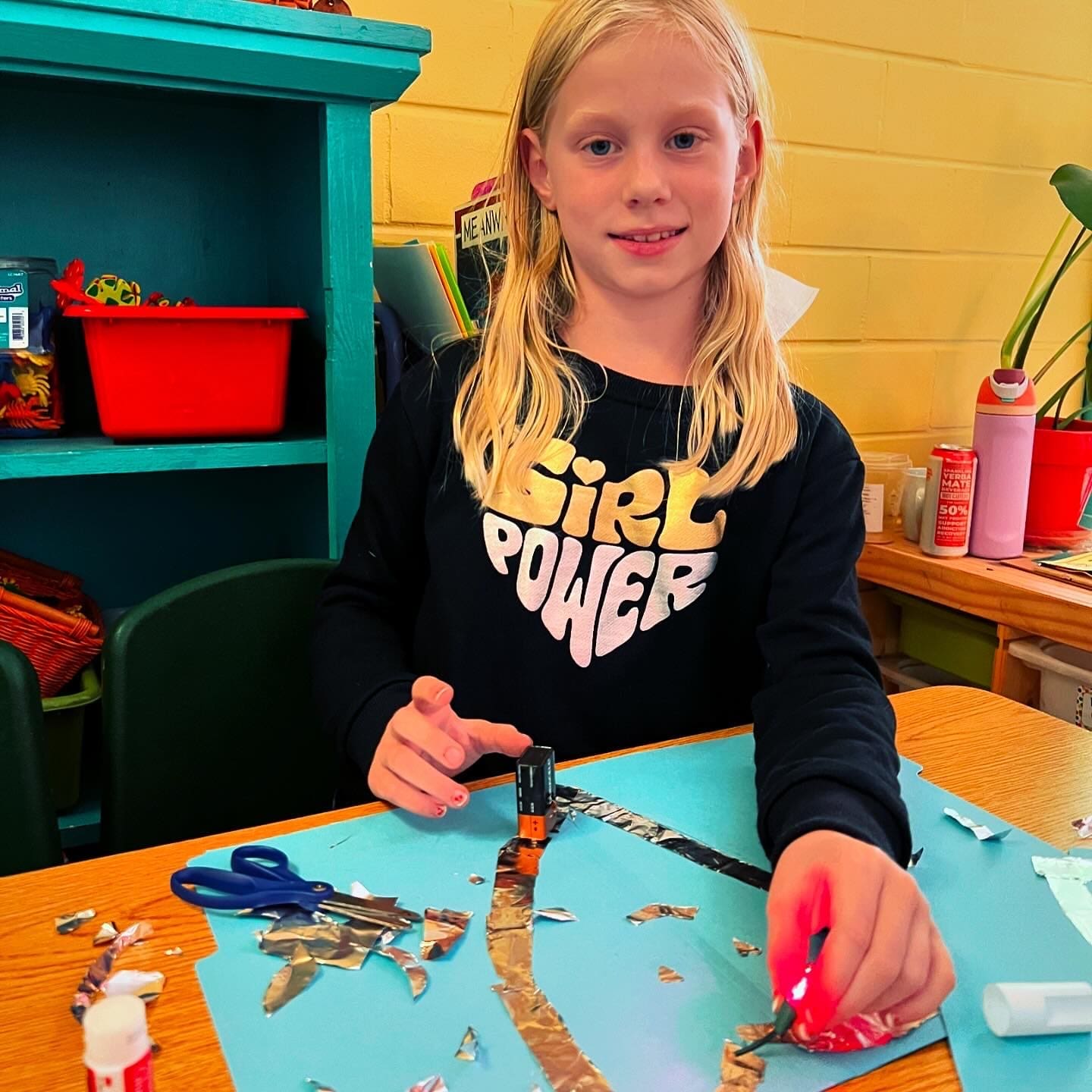 | 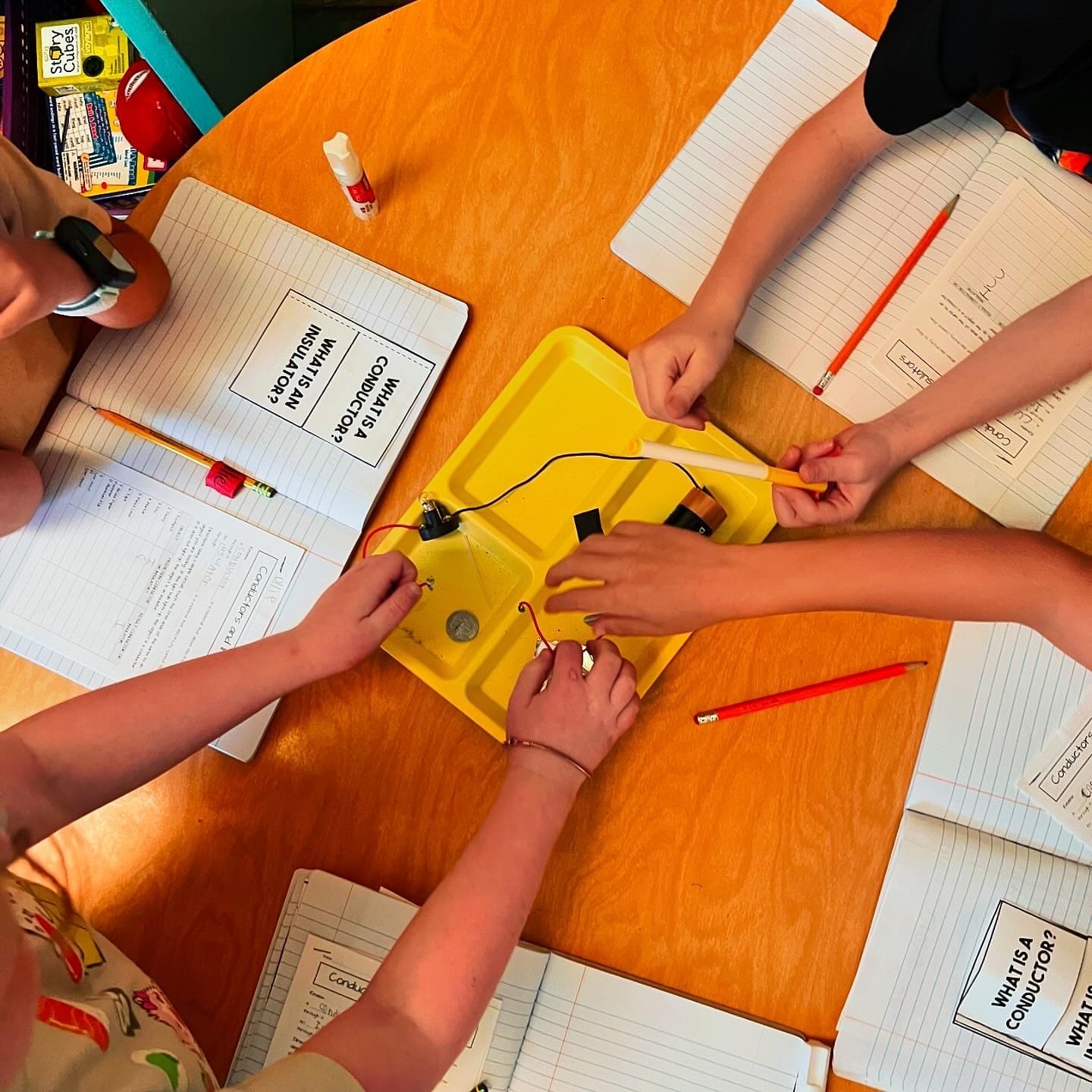 |
|---|---|---|
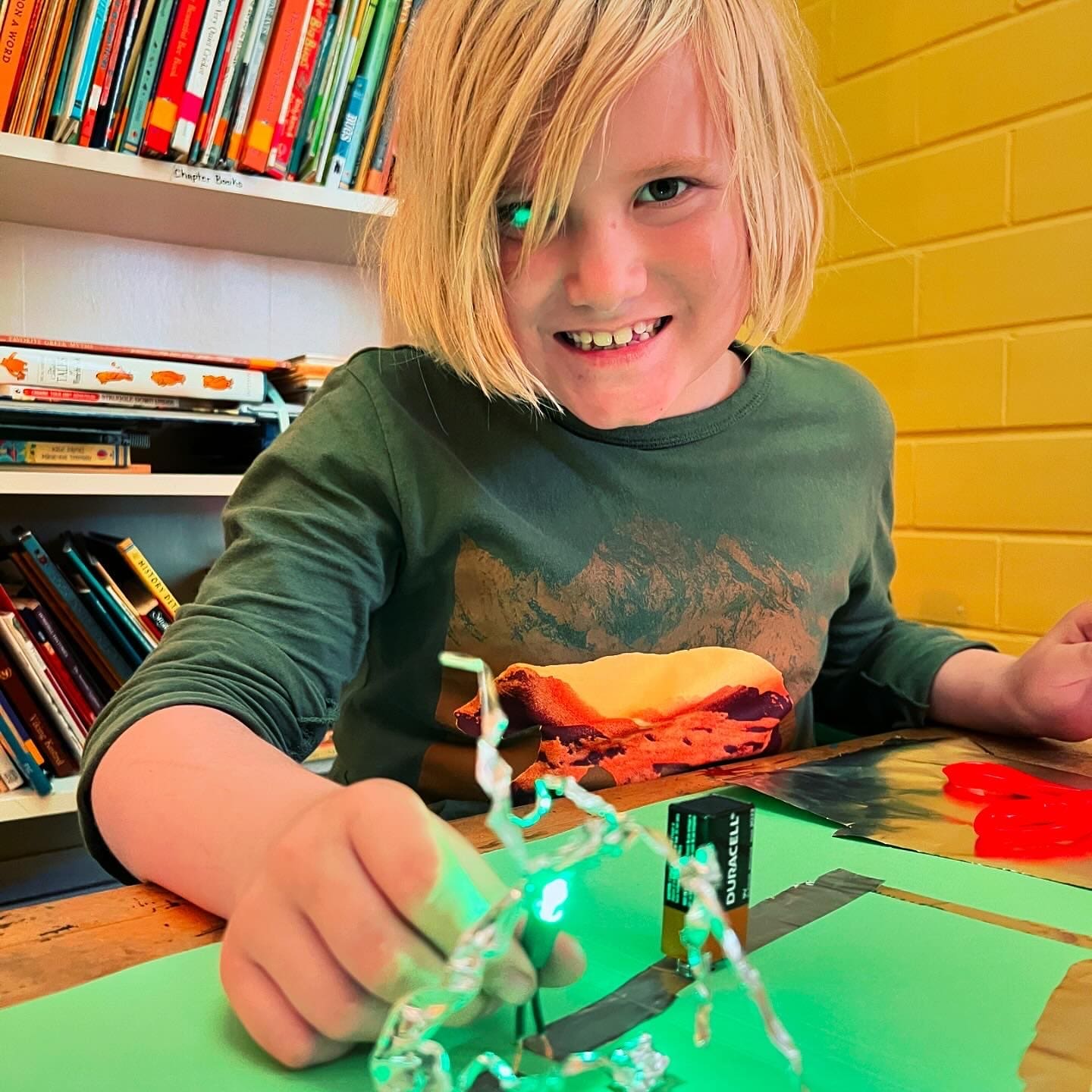 | 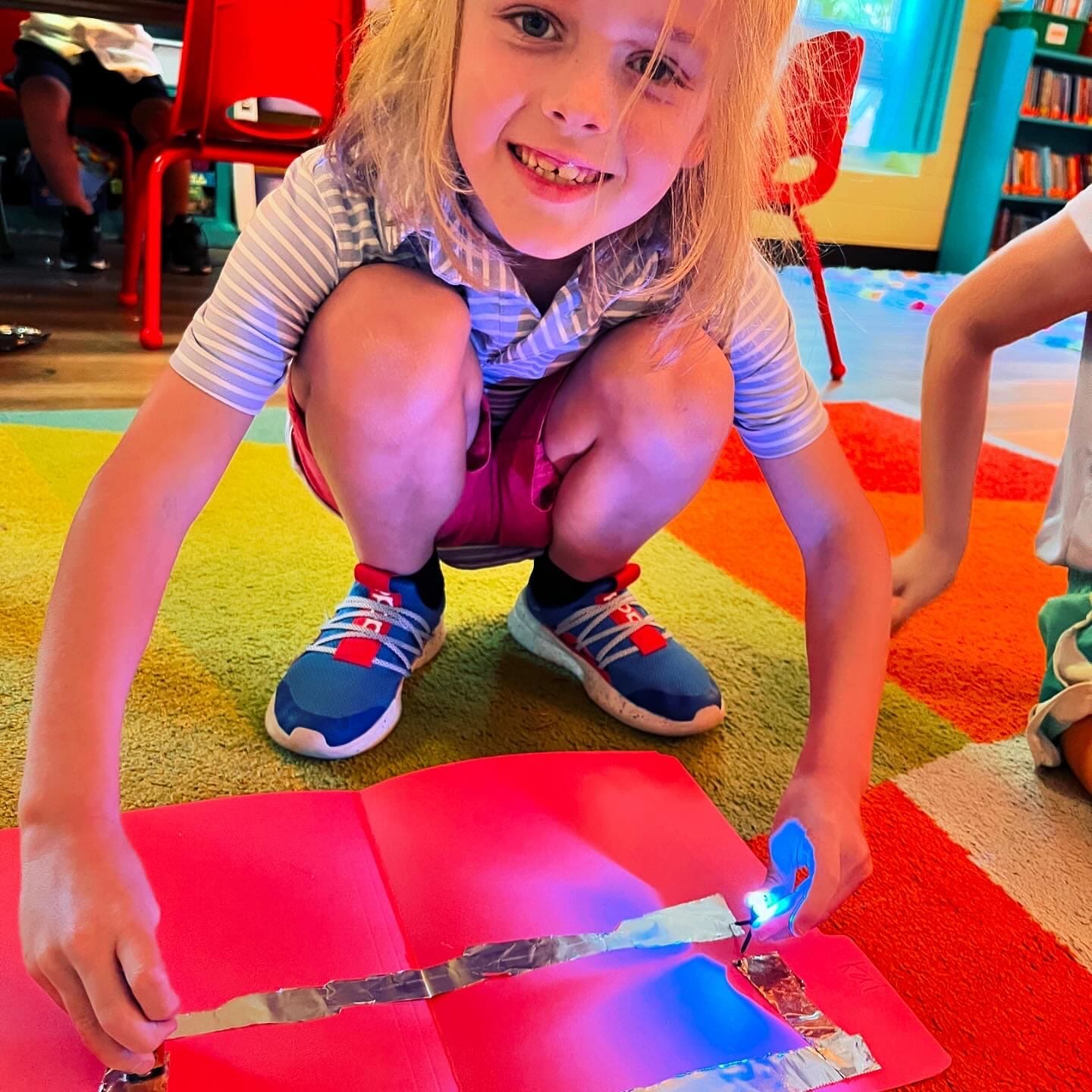 | 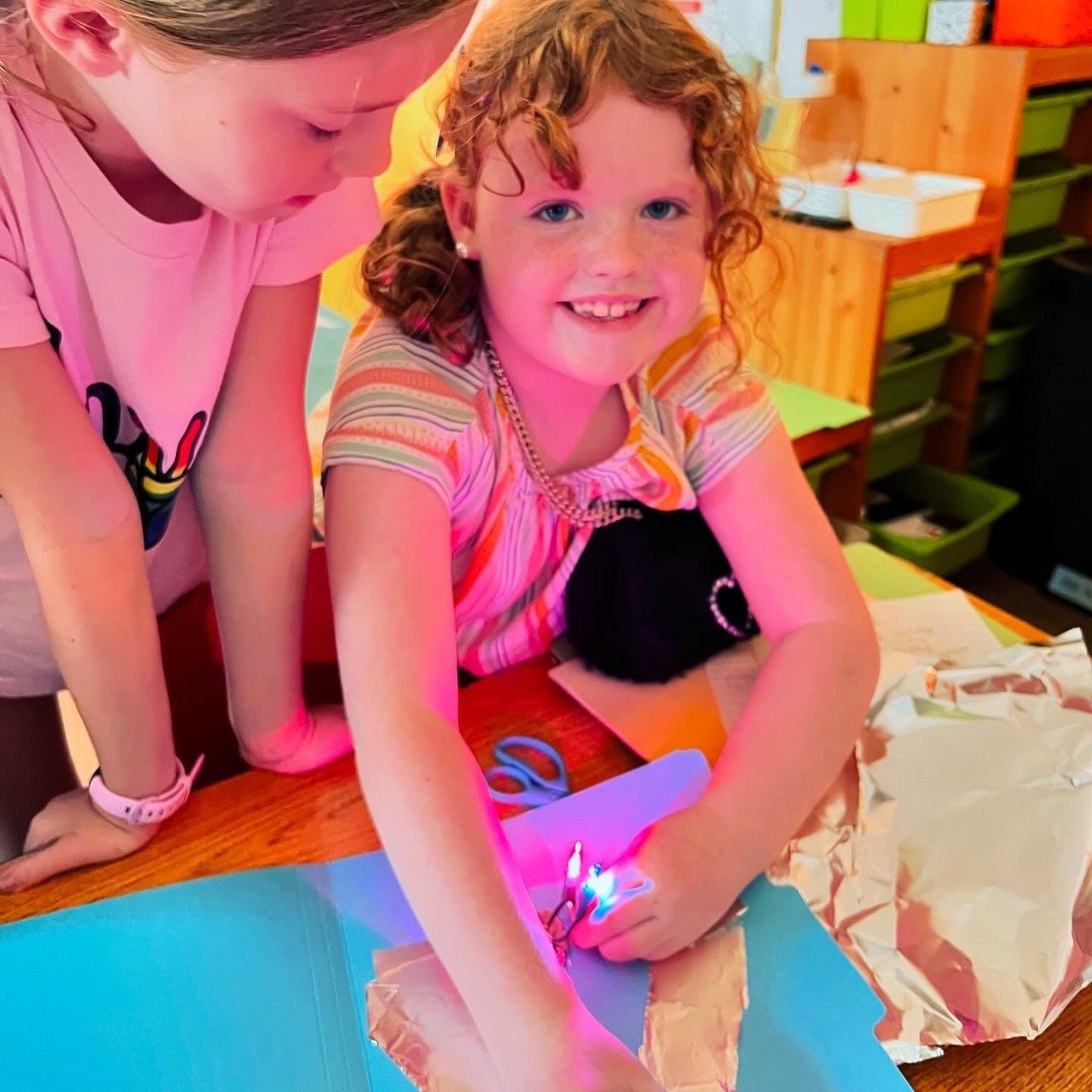 |
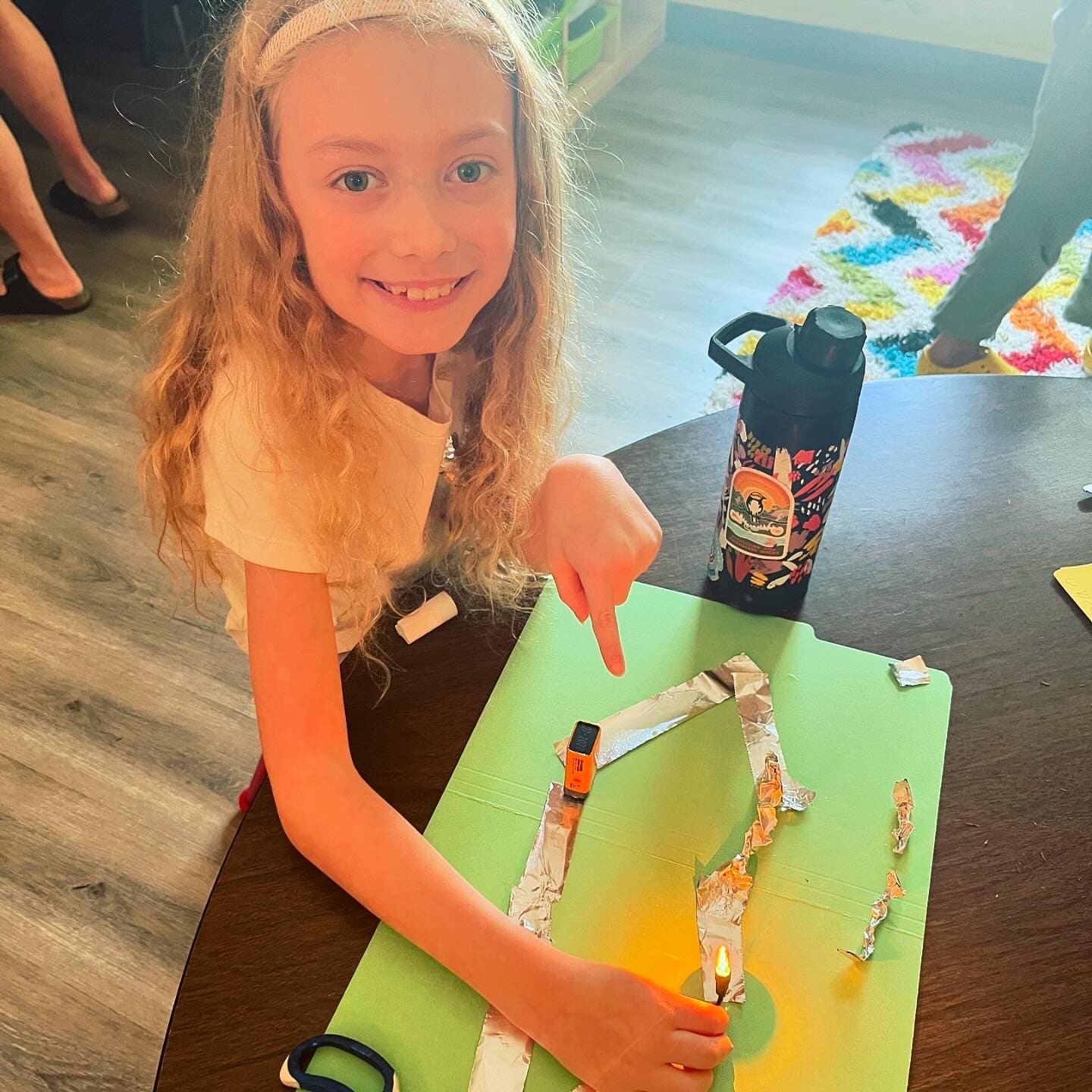 | 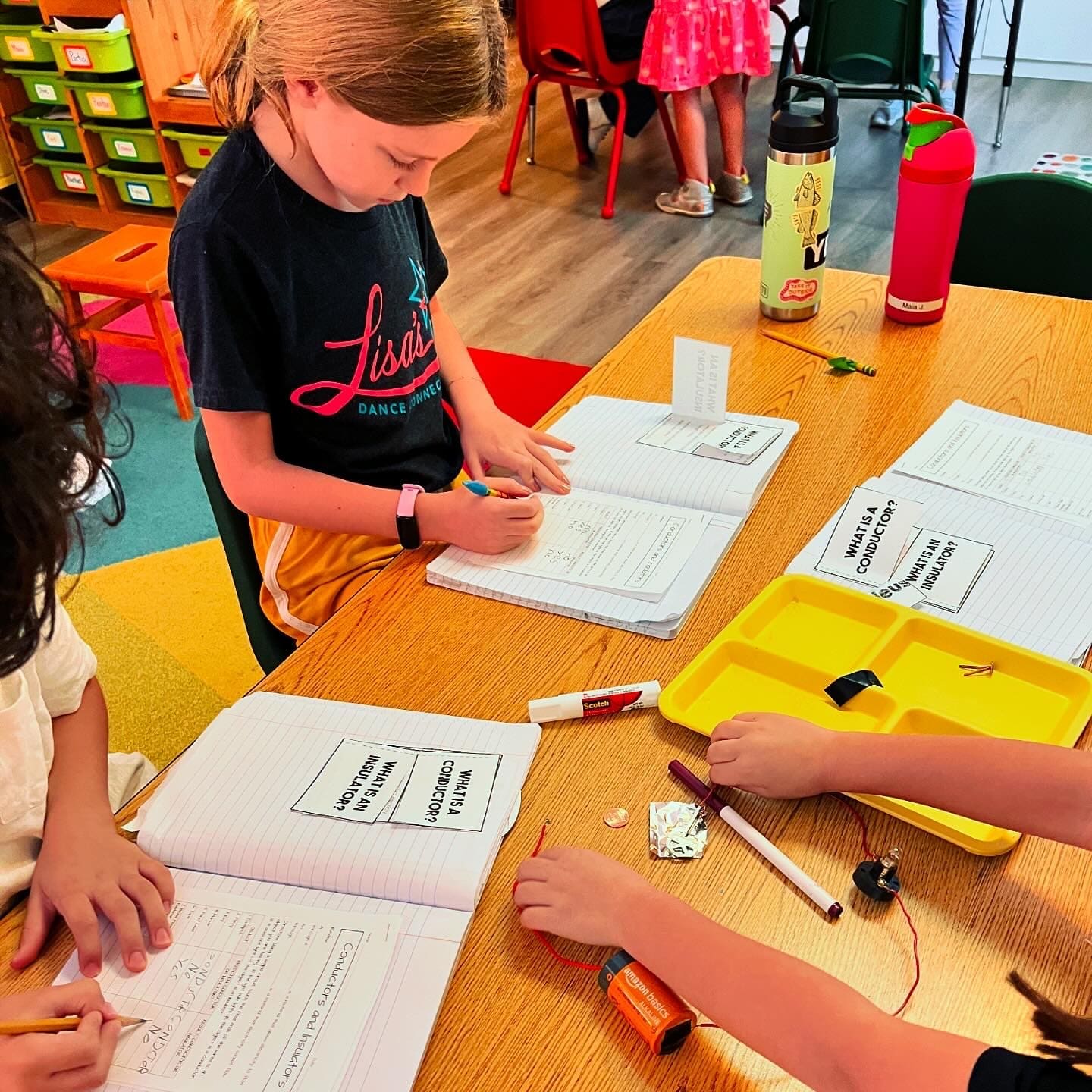 | 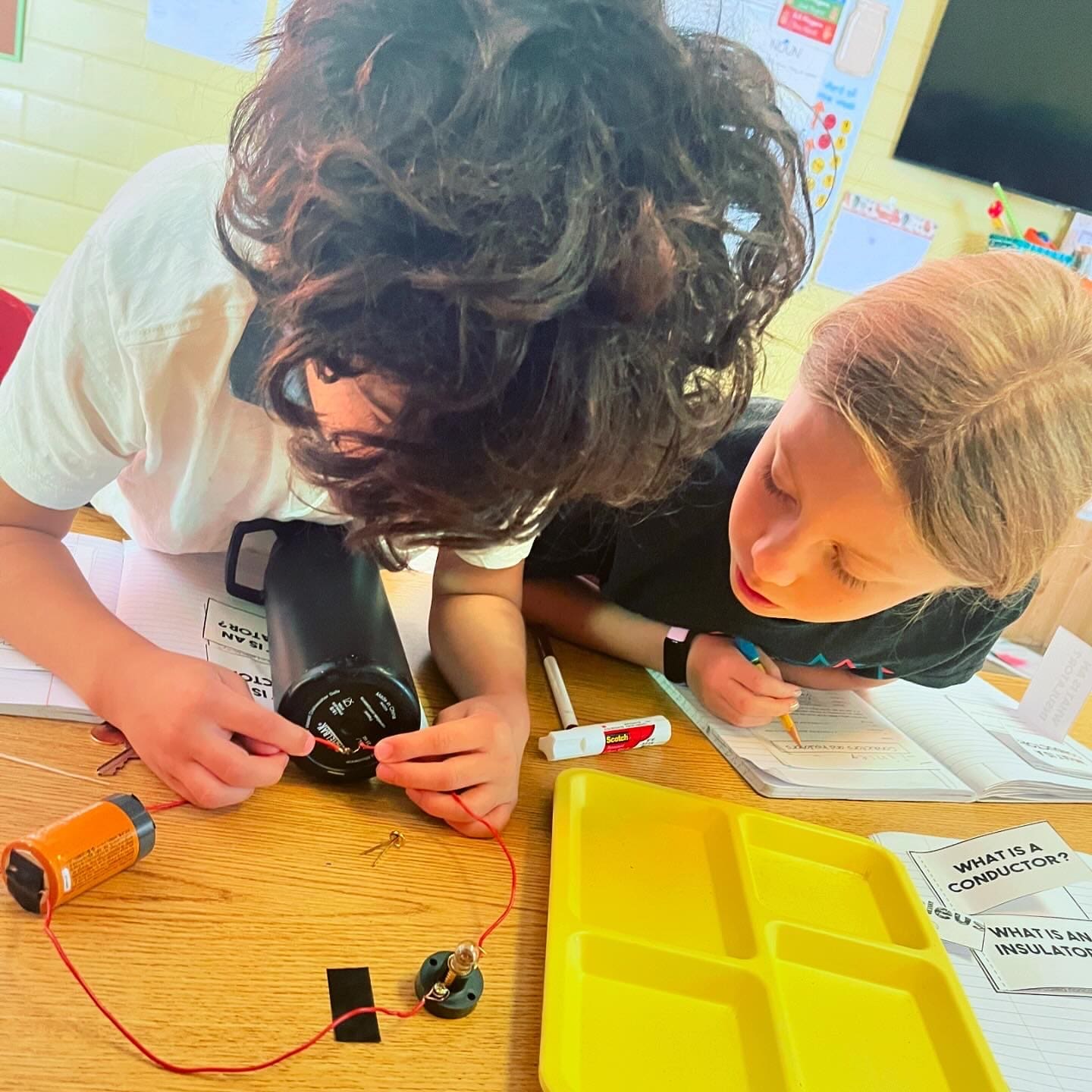 |
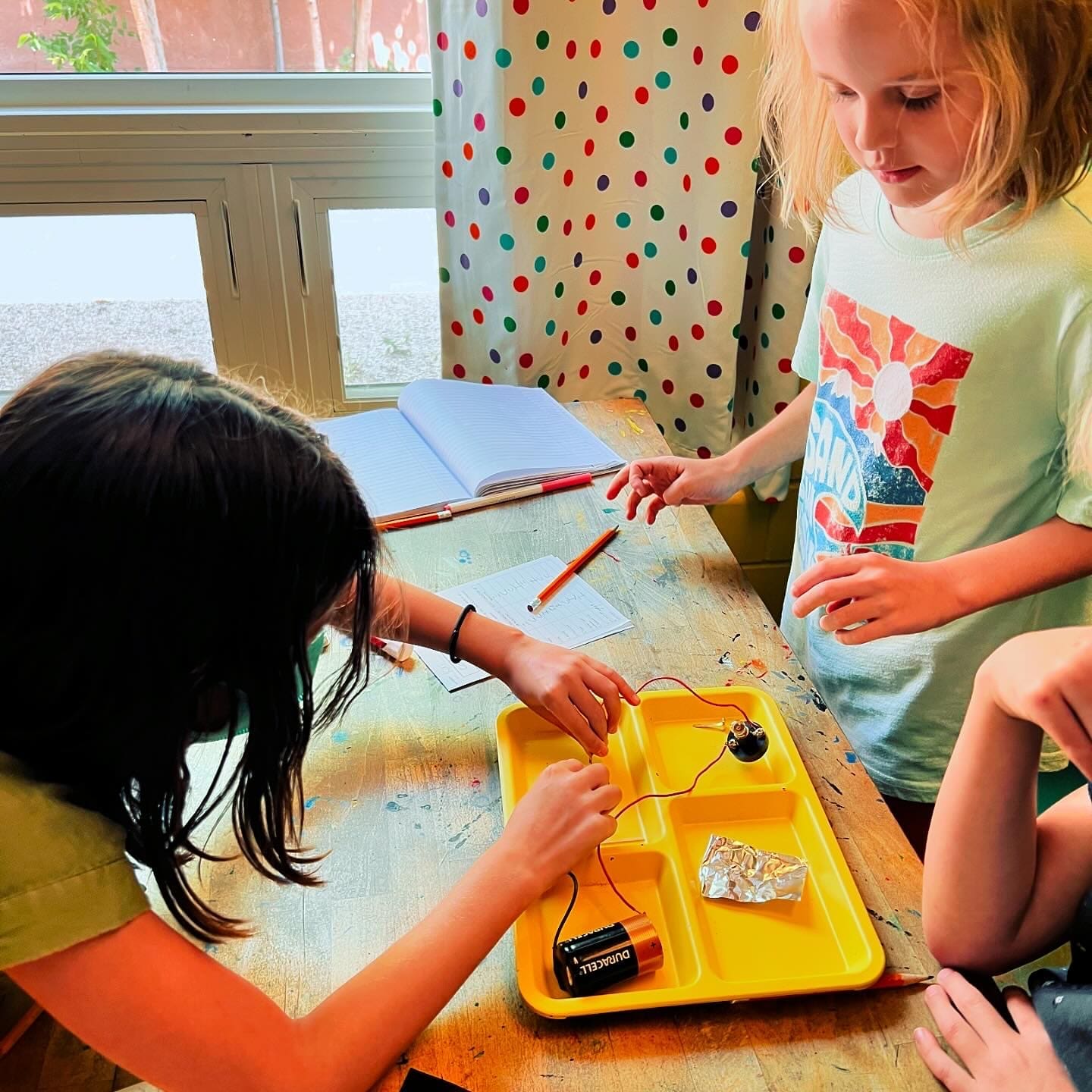 | 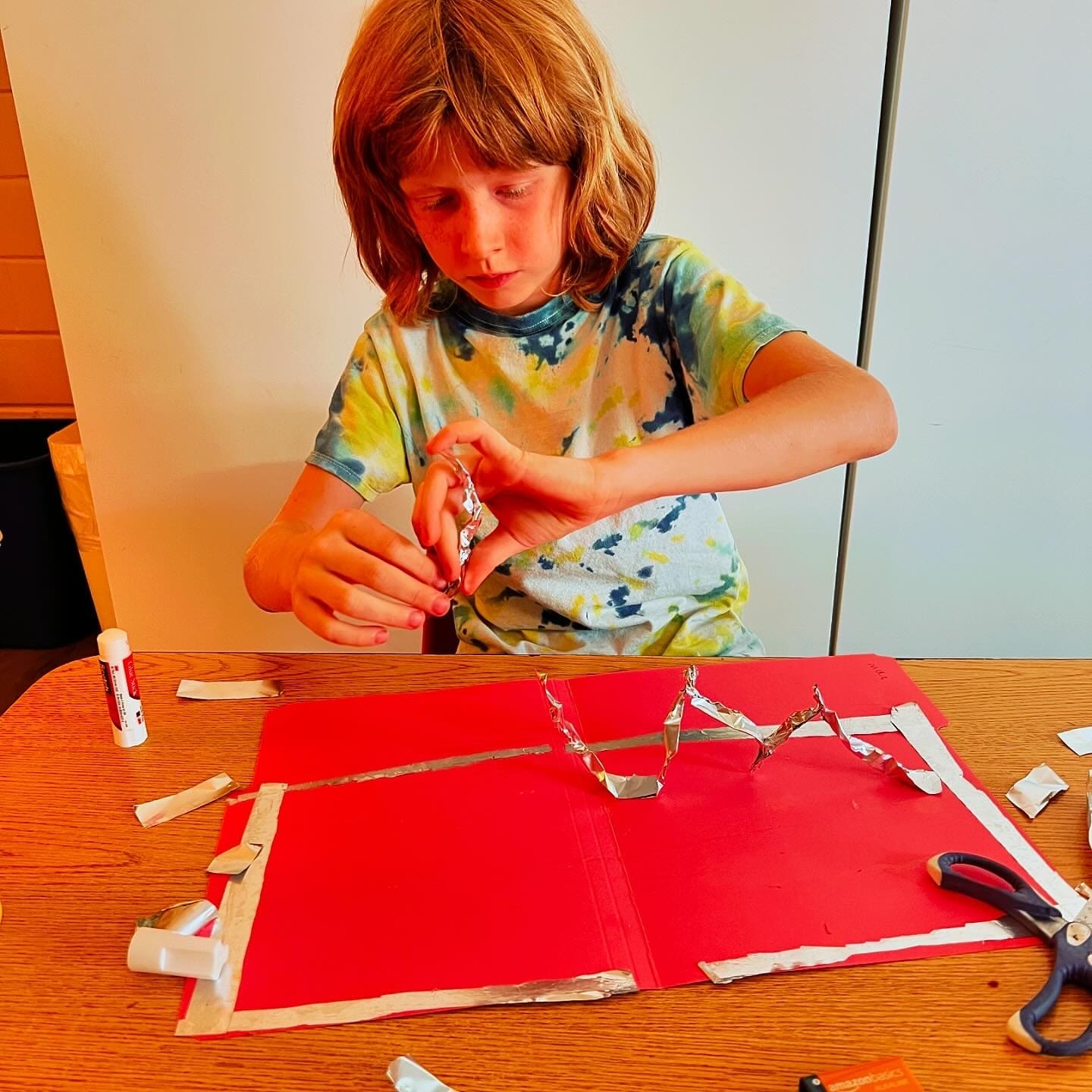 |

